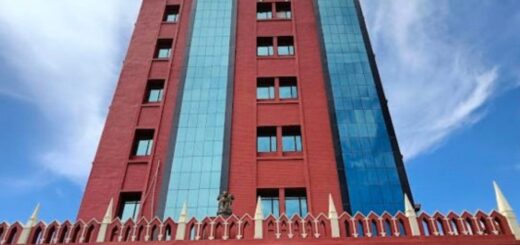The Supreme Court will hear the Mosque Committee’s request regarding the Krishna Janmabhoomi-Shahi Idgah dispute on December 9.

The Supreme Court announced it will hear a case on December 9 from the mosque committee. This case challenges the Allahabad High Court’s decision that dismissed its petition regarding the validity of 18 cases from the Hindu side in the Krishna Janmabhoomi-Shahi Idgah dispute in Mathura. A panel led by Chief Justice Sanjiv Khanna and Justice Sanjay Kumar stated they will conduct a thorough hearing at 2 pm on that date. The Chief Justice mentioned that they need to clarify the legal situation. He indicated that he believes an intra-court appeal could be valid against the High Court’s single judge ruling from August 1.
The bench assured the committee that they would have a chance to present their arguments. On August 1, the High Court had turned down the mosque committee’s request to challenge the validity of the 18 cases, stating that the “religious character” of Shahi Idgah must be established. The mosque committee argued that the lawsuits from Hindu plaintiffs regarding the Krishna Janmabhoomi temple and the nearby mosque went against the Places of Worship (Special Provisions) Act, making them invalid. This 1991 Act prevents any changes to the religious character of shrines as they were on the day of India’s Independence, with the only exception being the Ram Janmabhoomi-Babri Masjid case.
The cases brought by the Hindu side aim to remove a mosque from the Aurangzeb era, which they claim was built after a temple was destroyed. The High Court noted that the 1991 Act does not explain “religious character” and stated that the disputed site cannot have both a temple and a mosque at the same time, as they conflict with each other. The court emphasized that the site must be identified as either a temple or a mosque, and the religious character as of August 15, 1947, should be established through both documentary and oral evidence from both parties. The High Court determined that the cases are not restricted by the Wakf Act of 1995, the Places of Worship Act of 1991, the Specific Relief Act of 1963, the Limitation Act of 1963, or the Civil Procedure Code of 1908.
Counsel for the Hindu side, Vishnu Shankar Jain, mentioned that with the rejection of the plea regarding maintainability, the High Court will proceed with all related cases concerning the temple-mosque matter. Jain also indicated that the Hindu side plans to approach the Supreme Court to lift its stay on a previous Allahabad High Court ruling that permitted a survey of the mosque. The Hindu claimants argue that the mosque shows evidence of having been a temple. In contrast, the mosque management and the Uttar Pradesh Sunni Central Waqf Board contended that the lawsuits are prohibited under the Places of Worship Act and other regulations. On May 31, the Allahabad High Court reserved its decision on the maintainability plea after hearing both sides but later reopened the hearing at the request of Shahi Idgah counsel Mehmood Pracha. The final judgment was reserved on June 6. The situation in Mathura is similar to the ongoing legal battle in Varanasi, where the Gyanvapi mosque and Kashi Vishwanath temple are adjacent to each other.









